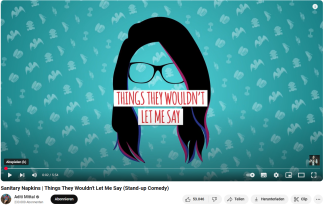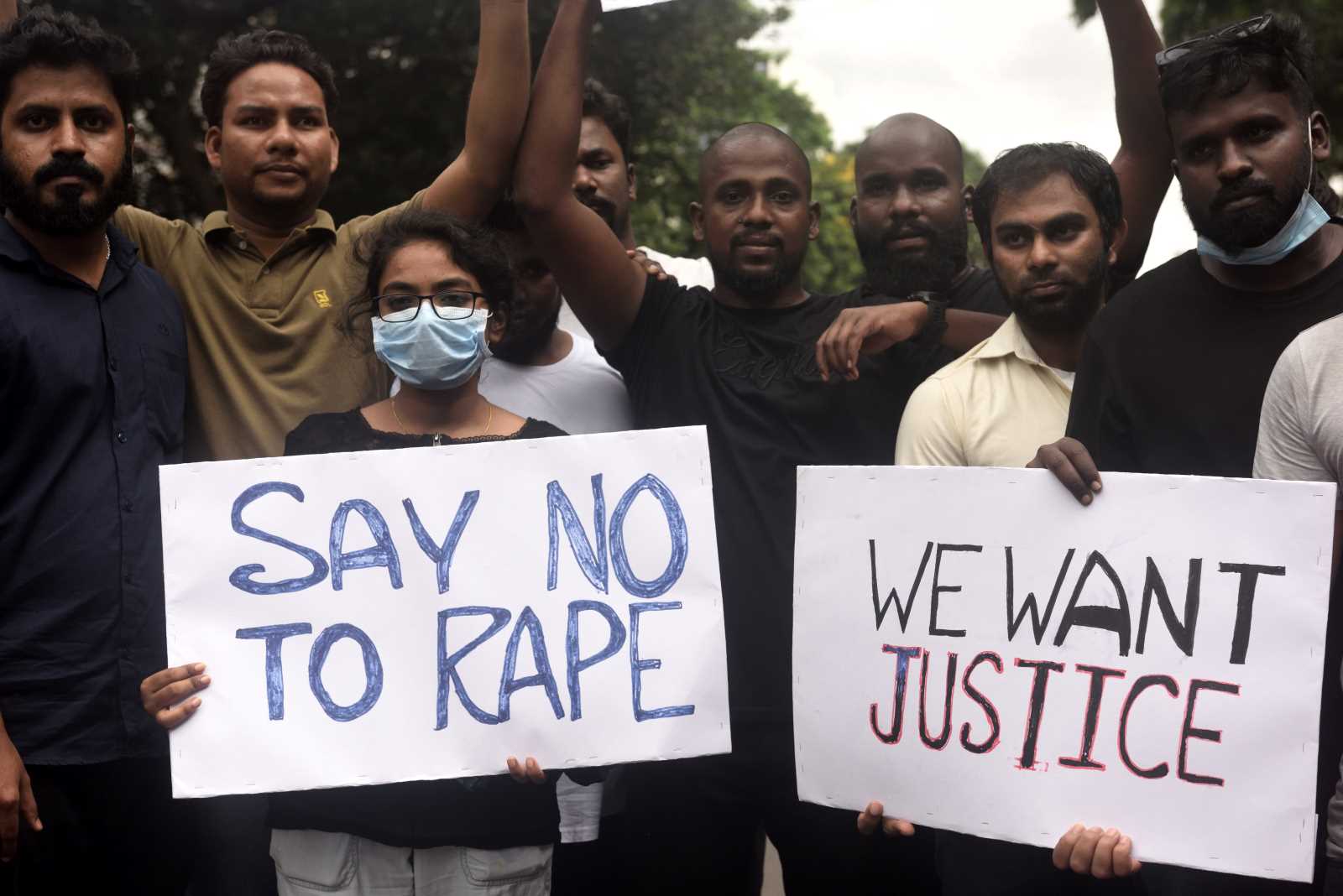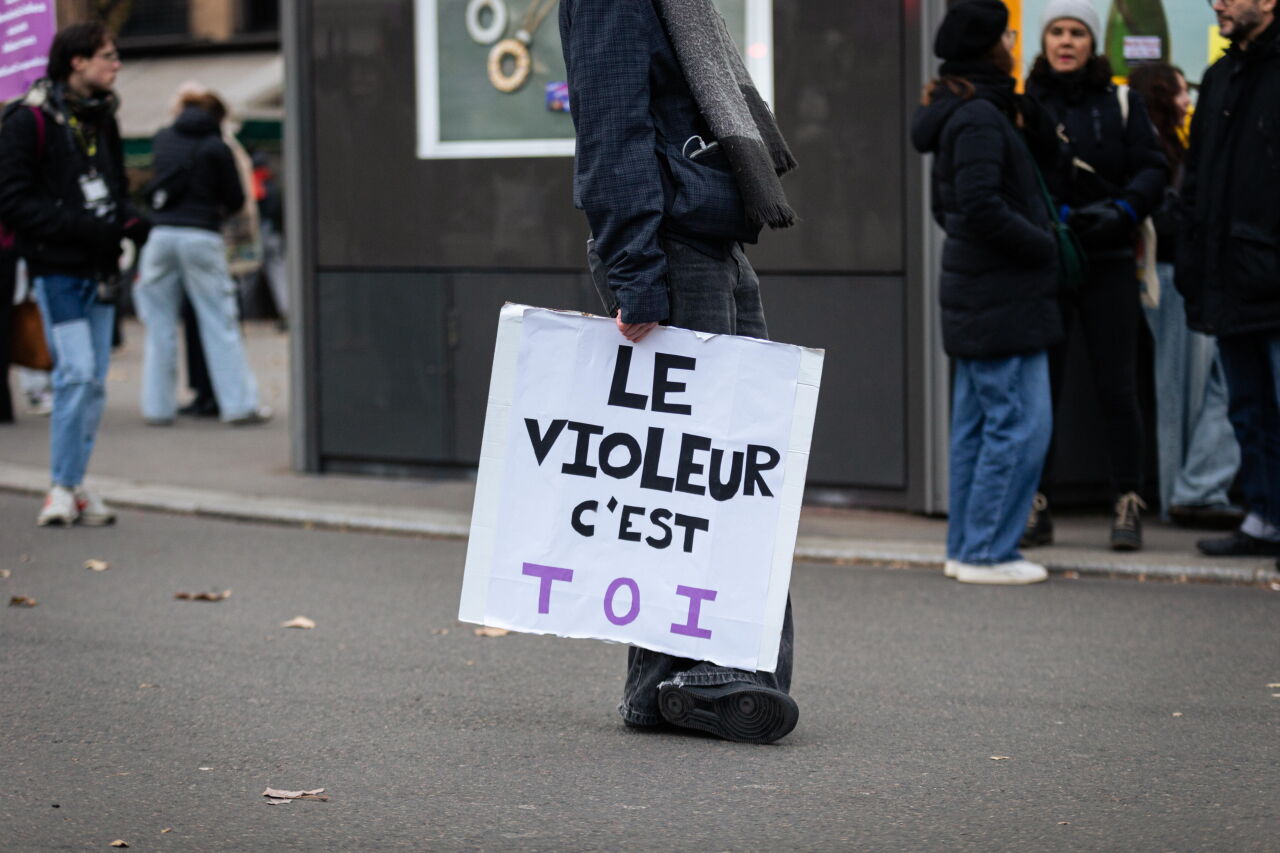Female comedians
Why female comedy in India is not just about laughs

Caller: Hello. Is this the house of Mr. Bhatti?
Wife of Mr. Bhatti: Hello, yes, the house is his. But hey, the land was given by my father in dowry!
This scene is from an Indian television comedy from the 1980s. Even back then, women played small but important roles that subtly conveyed profound social messages. In the present day, these roles are much bigger. In particular, stand-up comedy has grown a lot and the number of female performers – mostly young, urban and English-speaking – has increased significantly.
Feminist stand-up comedy is more than just entertainment. It works like satire, often serving to scrutinise the values and power structures of society. In this sense, it is a chronicle of our times, a social commentary on politics. In a world of surveillance and censorship, it provides a space to talk about difficult issues in a non-threatening but thought-provoking way.
Redefining comedy
Stand-up comedy has long been a male-dominated genre in India. If ticket prices are to be believed, names like Vir Das with higher fees, international gigs and corporate clients seem to have a much wider appeal. As Aditi Mittal, one of the more successful female comedians, wryly observes, “Women stand-up comedians are the diversity candidates. Hello, vagina, please say something, anything!”
Despite this, female stand-up comedians are constantly challenging social norms, debunking stereotypes and redefining humour. Their comedy sheds light on everyday misogyny, the subordinate position of women in the home and workplace, unrealistic beauty standards and a range of contemporary issues that society often keeps quiet about.
Stand-up comedy for women covers overlapping themes: commentary on patriarchy, gender norms, sexuality, workplace dynamics, body and beauty norms, intergenerational conflict and, more recently, issues of disability, caste discrimination and LGBTQI+ identities.
Unpacking patriarchy
“My in-laws love me so much that they hardly let me go out. Just shows how indispensable they think I am, and how sad they would be if I go out for just a couple of hours,” says Adya Srivastava. Female comedy reveals the difficult truths about the influence of patriarchal norms on daily life. It provides a space to confront and expose the patriarchy that masquerades as family values.
Self-deprecating humour also helps to address social judgements about women’s choices. Shreya Priyam Roy quips: “I am an ethical gold digger. There are several dating apps, but LinkedIn is by far the best.” At the same time, such jokes confront stereotypes while recognising how deeply rooted the patriarchy is – even among women themselves.
This also applies to questions of sexuality. In India, this is a taboo subject. Women who speak openly about it are considered scandalous. Comedy has enabled them to courageously break through this ceiling. “Dildo is pleasure without patriarchy,” says Devanshi Shah. This candid approach to female lust has sparked both praise and controversy.
Shraddha Jain talks about workplace issues. “I am a corporate Cinderella. For one annual event I purchase an expensive dress with the salary hike that I did not get.” This topic is very popular with women, as the content is linked to their experiences of disappointment and rejection. “I do not get any awards. I get dedications. My seniors, bosses and the CEO will dedicate their awards to junior executives like me while they take home the actual awards.” This humour underlines the merely symbolic appreciation that is often shown to women in workplaces without tangible opportunities for advancement.
Voices from the margins
A positive trend, albeit small in numbers, is the emerging voice of female comedians with marginalised identities, including those with disabilities and from the LGBTQI+ community.
Nidhi Goyal, a visually impaired comedian and activist, delivers punchlines that expose ableism: “I am blind. But so is love. Get over it, guys.” By incorporating her own experiences into her comedy, she advocates for more inclusion in entertainment.
Gurleen Kaur declared before an audience, “I am bisexual.” Met with silence, she asked: “If everyone could be so quiet at my coming out, I could have done that with my family, right?” When the audience burst out laughing, there was at least a semblance of acceptance.
Discrimination based on caste is also thematised in comedy. Although there are very few women or queer people tackling this issue, the space is expanding with new actors such as queer Dalit comedian Ankur Tangade. Despite its social relevance, such comedy is often rejected by the organisers for fear of offending their audience.
Barriers beyond the stage
Despite their growing influence, feminist stand-up comedians face hostility over their content, gender pay gaps and exclusion from mainstream industry opportunities. Several female comedians report, for example, that they are invited to “women’s empowerment events” organised by companies where they are expected to perform for free.
There are also tensions between challenging hierarchies and trying to “fit in” and be accepted by the wider audience. Inequality in the industry extends beyond the stage – fewer gigs and limited opportunities for mentorship mean that some female comedians follow the male-dominated style of humour.
However, the rise of social media has allowed female comedians to continue to participate and get their views across through Instagram reels, Netflix events or YouTube clips. These are accessible platforms, especially for those struggling with economic, cultural and logistical barriers to live performances.
At a time when India is pushing for greater gender representation, female stand-up comedians have carved a place for themselves as cultural disruptors. They show that women’s experiences are crucial in confronting uncomfortable truths and pushing the scope of what is considered funny. However, their comedy is not just about getting laughs, but also about creating awareness and provoking thought.
Ipsita Sapra is an associate professor at the School of Public Policy and Governance at the Tata Institute of Social Sciences, Hyderabad.
ipsita.sapra@tiss.edu












